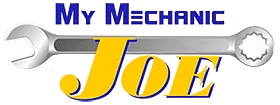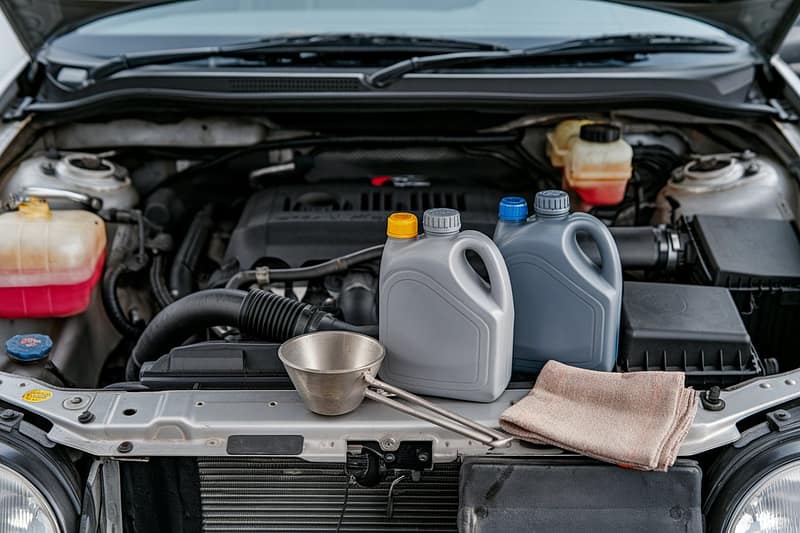Having your car run smoothly and efficiently depends mainly on maintaining the essential fluids that keep its various systems functioning properly. Just like how our bodies need water and nutrients, cars rely on different fluids to operate safely and effectively. Neglecting these fluids can lead to poor performance and even serious long-term damage.
Regularly checking and maintaining your car’s fluids is one of the easiest and most important steps in car care. From ensuring your engine stays well-lubricated with oil to keeping the braking system responsive with adequate brake fluid, each fluid plays a crucial role. Understanding when and why to check these fluids can save you from costly repairs and keep your vehicle in top condition.
In this article, we’ll explore the essential car fluids you need to monitor and maintain. We’ll explain their roles, how to check their levels, and when it’s necessary to top them off or replace them. Whether you’re a seasoned car owner or new to vehicle maintenance, this guide will provide you with the knowledge to keep your car running efficiently.
Engine Oil: The Lifeblood of Your Car
Table of Contents
- 1 Engine Oil: The Lifeblood of Your Car
- 2 Coolant: Keeping Your Engine Cool
- 3 Brake Fluid: Ensuring Safe Stops
- 4 Transmission Fluid: Smooth Shifts
- 5 Conclusion
- 6 What are the 6 essential car fluids?
- 7 Why is it important to check engine oil?
- 8 How often should I check my brake fluid?
- 9 What is the purpose of transmission fluid?
- 10 When should I check my power steering fluid?
Engine oil is essential for your car’s performance and longevity. It lubricates the engine’s moving parts, reducing friction and preventing overheating. Without regular oil checks and changes, engine components can wear out quickly, leading to costly repairs. Maintaining optimal oil levels and quality is important to keep your engine running smoothly.
To check your engine oil, park your car on a level surface and wait for the engine to cool down. Open the hood and locate the dipstick, which usually has a brightly colored handle. Pull the dipstick out, wipe it clean with a cloth, and reinsert it fully.
Pull it out again to check the oil level; it should be between the “min” and “max” markers. If the oil level is low, add oil until it reaches the desired level. Also, observe the oil’s color and consistency. If it appears dark or gritty, it’s time for an oil change. Regularly checking and maintaining your engine oil can significantly extend the life of your vehicle.
Coolant: Keeping Your Engine Cool
Coolant, also known as antifreeze, plays a critical role in regulating your engine’s temperature. It circulates through the engine, absorbing excess heat and preventing the engine from overheating. This is especially important during hot weather or long drives. Without adequate coolant, your engine can overheat, leading to severe damage and potentially costly repairs.
To check your coolant levels, ensure the engine is cool to avoid burns. Locate the coolant reservoir under the hood; it is usually a translucent plastic container with “min” and “max” level markings. If the coolant level is below the “min” mark, you’ll need to add more. When topping off the coolant, make sure to use the type recommended in your vehicle’s manual.
Inspect the coolant for any debris or discoloration, as these are signs that it may need to be flushed and replaced. Keeping your coolant at the proper level and in good condition is a simple yet crucial step in vehicle maintenance.
Brake Fluid: Ensuring Safe Stops
Brake fluid is crucial for the proper functioning of your car’s braking system. It transfers the force from your foot on the brake pedal to the brake pads, allowing your car to stop effectively. Low or contaminated brake fluid can lead to a spongy brake pedal, reduced braking efficiency, and even total brake failure. Regularly checking brake fluid levels and quality is essential for your safety on the road.
To inspect your brake fluid, first locate the brake fluid reservoir, usually found near the back of the engine bay. The reservoir is often marked with “min” and “max” lines to indicate the appropriate fluid level. Make sure the vehicle is on a level surface and that the engine is cool before you open the reservoir cap. The fluid should be clear or slightly yellow. If it’s dark or contains debris, it’s time to replace it. If the fluid level is below the minimum mark, top it off with the recommended type of brake fluid for your vehicle. Keeping your brake fluid clean and at the proper level ensures responsive and reliable braking.
Transmission Fluid: Smooth Shifts
Transmission fluid is vital for maintaining smooth gear shifts and prolonging the life of your transmission. It lubricates the moving parts inside the transmission, helps to cool the transmission, and provides the necessary hydraulic pressure for gear changes. Low or degraded transmission fluid can lead to slipping gears, hard shifts, and potential transmission damage.
To check the transmission fluid level, start by warming up your car’s engine. Park on a level surface and leave the engine idling. Locate the transmission dipstick, which is typically found near the back of the engine bay. Pull the dipstick out, wipe it clean, and reinsert it fully, then pull it out again to check the level.
The fluid should reach the “full” mark and be a bright red or amber color. If the fluid level is low or the color looks dark and dirty, it’s time to add fluid or schedule a change. Ensure you’re using the type of transmission fluid recommended by your vehicle’s manufacturer. Keeping an eye on your transmission fluid can help your car run smoothly and avoid costly repairs down the road.
Conclusion
Regularly checking and maintaining your car’s essential fluids is crucial for ensuring your vehicle’s performance and reliability. By taking the time to inspect engine oil, coolant, brake fluid, and transmission fluid, you can prevent common issues and extend the life of your car Each of these fluids plays a vital role in your car’s operation, and maintaining them properly can help you avoid unexpected breakdowns and expensive repairs.
If you’re unsure about performing these checks yourself or need professional preventative car maintenance, look no further than My Mechanic Joe in Woodstock, GA. Our expert mechanics are here to help you keep your car in top shape. Schedule an appointment with us today to ensure your vehicle is running smoothly and safely.
What are the 6 essential car fluids?
The 6 essential car fluids that every vehicle owner should be aware of include engine oil, brake fluid, transmission fluid, power steering fluid, coolant, and washer fluid. These fluids in your vehicle are crucial for maintaining optimal performance and ensuring safe driving. Regularly checking these fluids helps keep your car running smoothly and prevents costly repairs.
Why is it important to check engine oil?
Engine oil is vital for lubricating the moving parts of your engine, reducing friction and preventing overheating. Regularly checking the oil level is important because low engine oil can lead to engine damage. It is recommended to check your engine oil every 3,000 to 5,000 miles and to perform an oil change based on your vehicle manufacturer’s recommendations.
How often should I check my brake fluid?
You should check your brake fluid levels at least once a month or before long trips. Low brake fluid can compromise your braking system, making your brake pedal feel soft or unresponsive. If you notice that your brake fluid levels are consistently low, it may indicate a leak or worn brake components, and you should bring your car to a professional for inspection.
What is the purpose of transmission fluid?
Transmission fluid is responsible for lubricating the moving parts of your vehicle’s transmission, ensuring smooth shifting between gears. It also helps cool the transmission and prevent overheating. You should check transmission fluid levels regularly, as low levels can lead to costly transmission repairs. It is typically recommended to check it every 30,000 miles, or as advised in your owner’s manual.
When should I check my power steering fluid?
Power steering fluid helps to lubricate and facilitate the smooth operation of your steering system. You should check your power steering fluid levels at least once a month. If you notice that your steering wheel is harder to turn or if you hear whining noises while turning, it may be a sign that you need to add more power steering fluid or that there may be a leak in the system.

